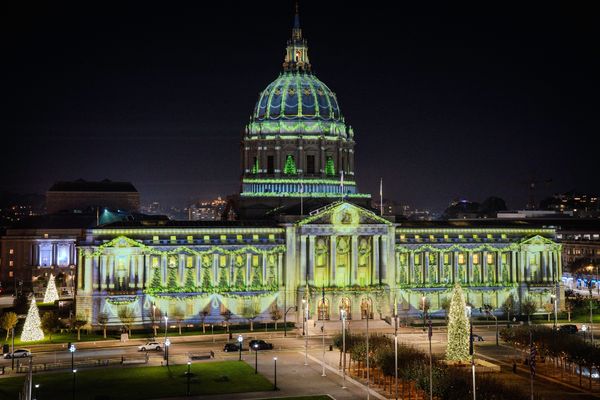No stranger to controversy—on the contrary, he courts it with the passion of a man possessed—Michael Moore has never minced words in his rabblerousing tirades against on-screen targets including the NRA, America’s private health-care providers and the Bush administration. So it should come as no surprise that the Michigan-born documentarian, 55, is equally blunt in his assessment of American economic policy in his latest offering, Capitalism: A Love Story.
His thesis? Quite simply, that capitalism is an unnecessary evil that must be eliminated if the divide between America’s elite and everyone else is to be narrowed. It’s a radical notion, one that will be greeted with skepticism in some quarters and scornful laughter in others, but with Love Story, he has made a provocative and disturbing argument.
As one might expect, the film documents some of corporate America’s greatest and most widely publicized offenses, including the subprime loan scandal and the subsequent $700 billion bailout pushed on Congress by financial institutions like Goldman Sachs and Bank of America. Yet there are troubling revelations, too, as Moore exposes companies like Wal-Mart and AT&T, which surreptitiously insure the lives of their employees, profiting from their deaths.
Moore premiered Love Story on Sunday at the Toronto Film Festival, and received a lengthy standing ovation from the 1,400 in attendance long before the closing credits had finished. Afterward, he offered his audience insights into the making of the film, as well as his reaction to President Barack Obama’s first eight months in office. The highlights:
On the long-lost Franklin Roosevelt newsreel he recovered for Love Story:
“There was a portion of FDR’s final State of the Union address that he wanted to have captured on film, and it was his unveiling of a proposed second Bill of Rights. We contacted the FDR library to see if we could use it, but they told us it was lost years ago. That’s the kind of challenge my team loves, so we went looking, and we found this newsreel buried in boxes in South Carolina.
“The FDR library now has it, and as an American, it’s heartbreaking to watch. He wanted to give Americans the rights to universal health care, jobs and a college education.”
On the impact of the Reagan era:
“Ronald Reagan presided over the destruction of our country. Every year, there’s a bill introduced to chisel his face on Mount Rushmore. It’s unimaginable, considering the long-term, crippling effects of Reagan's economic policies on America. And Bill Clinton, unfortunately, did nothing to change them. He pushed the Reagan ball down the field."
On the making of Love Story in the current economic climate:
“The foreclosures, layoffs and suffering had a profound effect on those who came to Michigan to live with me while making the film. I think it was easier to see the effects of the crisis there as opposed to New York or L.A. It was devastating.”
On the conservative backlash against Obama:
“Watching the crazed right-wingers at the town-hall meetings this summer, I think if Obama voters don’t use their majority vote to do something, all will be lost. But I made a point to mention in the movie that Obama’s biggest financial contributor is Goldman Sachs. That wasn’t included for [the general public]; that’s there for just one viewer. I want him to know that we know.
“He’s surrounded himself with guys like [former Citigroup executive] Michael Froman, who were responsible for the crisis in the first place. It might be the right thing to do—who better to clean up the mess than the guys who created it? So I’m trying to stay positive right now. I love being in America, I love being an American, and I know we can do better. We need to use the powers of our citizenship to vote, and help create the America that FDR wanted.”




















